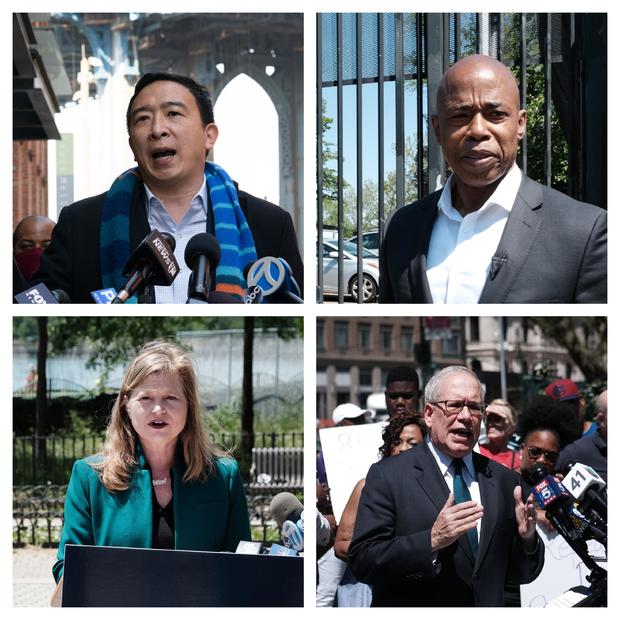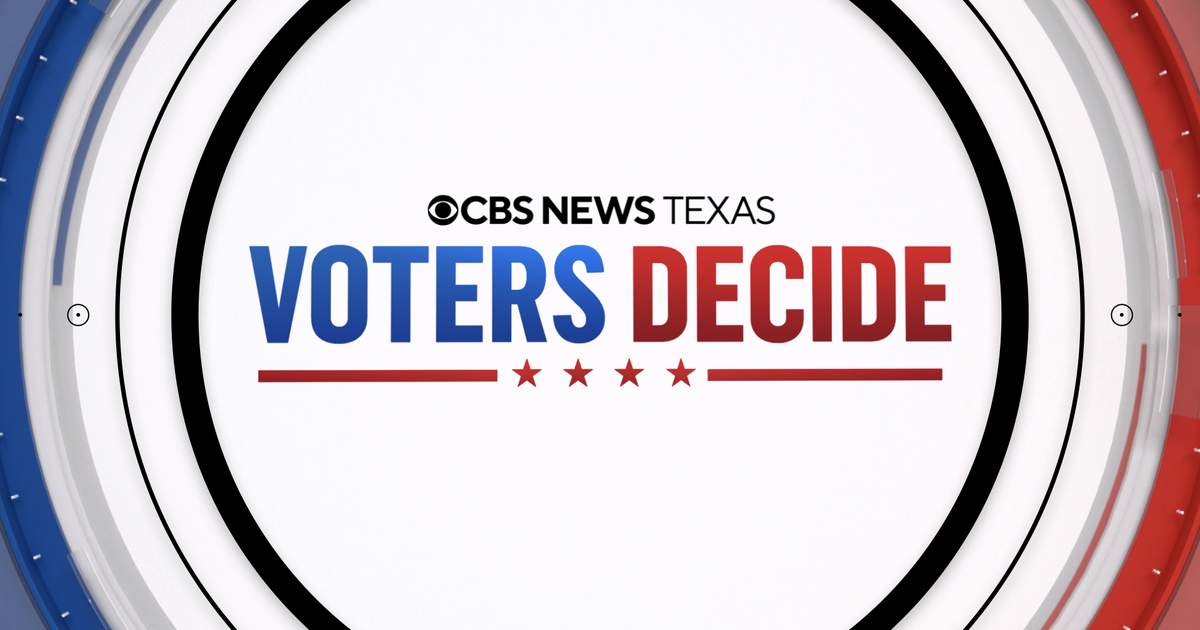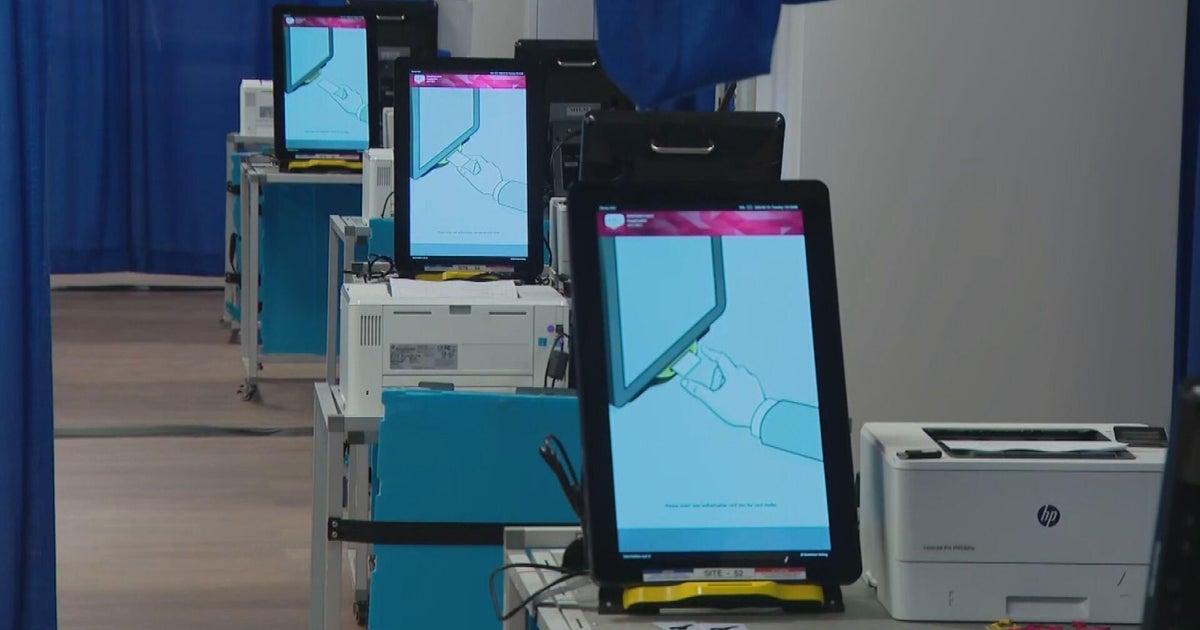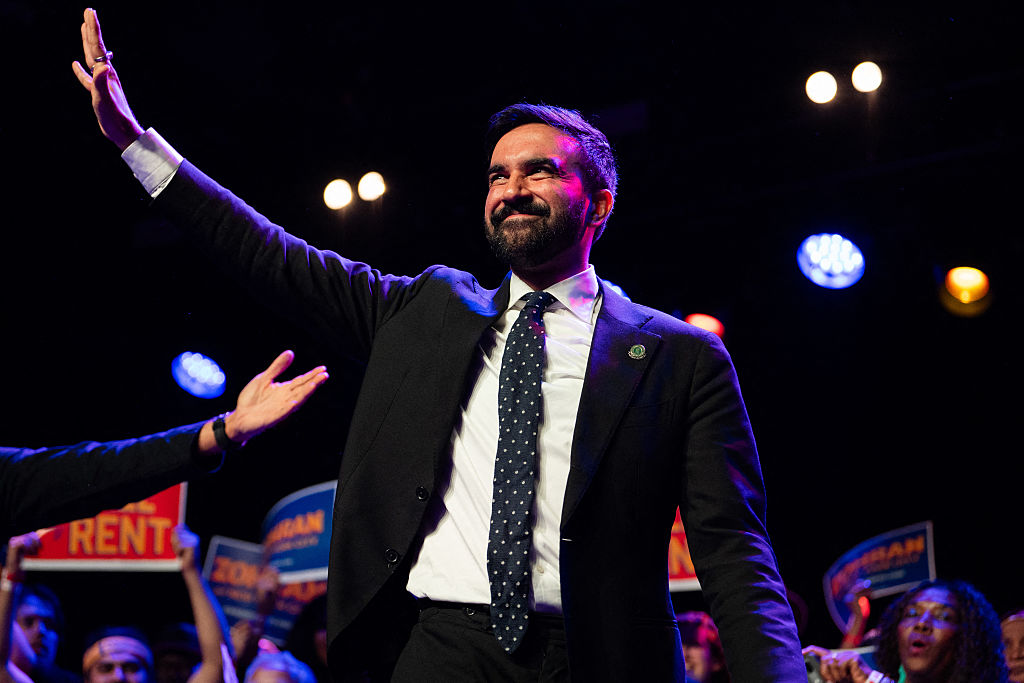Counting ballots in NYC mayor's race will be faster thanks to software approval
New Yorkers can expect to find out who won the city's upcoming Democratic mayoral primary more quickly than they would have if the New York State Board of Elections hadn't acted Tuesday to approve software for tabulating ranked-choice voting results. The decision means the city will now avoid a lengthy hand count of the ballots cast in the race next month.
New York City conducted four special elections earlier this year for council seats using the ranked-choice voting system, but without approved tabulation software, it took several days for officials to hand count the ballots.
"I think hand counts, in my estimation, are the worst way to conduct an election. I think certainly a voting system or a voting machine is a better way to count ballots," said Peter Kosinski, the Republican co-chair of the state Board of Elections. "There's a big primary coming up in June, a citywide primary, and conducting that one by hand I think would be very burdensome."
New York City voters approved ranked-choice voting for mayoral and other city primaries in 2019. Voters will be able to rank up to five candidates in those races. The Republican primary will not be a ranked-choice contest because there are only two candidates.
If no candidate wins a majority of first-place votes in the Democratic primary, then the candidate who receives the fewest votes will be eliminated. The voters who supported that candidate will have their second choice votes reallocated to a remaining candidate. That process of elimination and redistribution continues until one candidate receives a majority.
Despite the software approval, it'll still be days, if not weeks, before New Yorkers know who won the June 22 primary. Unofficial results of the first-choice votes are expected to be released on primary night to show first-choice votes, but the city Board of Elections says that officials won't be able to start calculating results until at least the following week.
City election officials said they'll provide more information about how results will be released next week. Absentee ballots will be accepted until June 29, a week beyond primary day. The deadline for voters to fix any curable defects, such as a signature issue, with an absentee ballot is July 9.
"In order to do this process in the best way, we need to balance the public's right to know who won the election and the individual voter's right to cast absentee and affidavit ballots that will be counted and counted in an anonymous matter," said Frederic Umane, president of the New York City Board of Elections.
A recent poll from Emerson College found that 39% of likely Democratic primary voters have heard a lot about ranked-choice voting, 42% have heard a little bit and 19% have heard nothing at all about the new system. In April, the city announced a $15 million voter education campaign.
While the state board unanimously approved the software, Kosinski and Anthony Casale, the other Republican commissioner on the four-member board, questioned the legality of New York City's use of ranked-choice voting because the voting process wasn't approved by the state. He said it goes against the provisions for runoffs in New York City elections set by the state. Douglas Kellner, the board's Democratic co-chair, defended New York City's decision to go ahead with using the voting process.
The ranked-choice voting software approved on Tuesday is used by other jurisdictions. It works by taking an electronic interpretation of each ballot produced by a ballot scanner and runs that information through a ranked-choice algorithm to determine the winner of those elections, said Thomas Connolly, director of election operations at the state Board of Elections.
Kellner noted that the city still needs to prepare "security procedures" to ensure that the records produced by the scanner match what's going into the algorithm.
More than 126,000 absentee ballots have been sent out for the June primary. Ten days of early in-person voting will begin on June 12.




